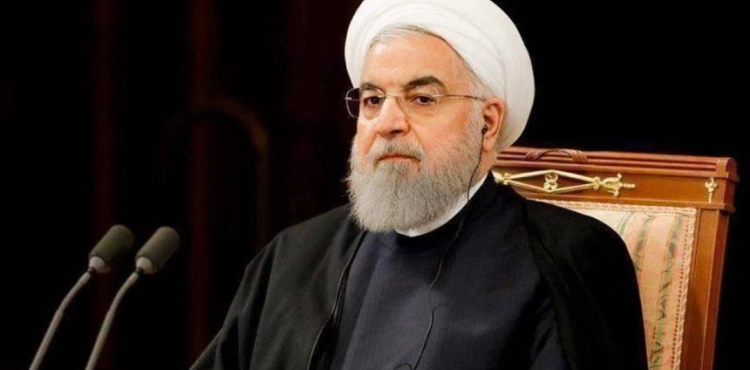Iranian President Hassan Rouhani left Tehran on Monday for New York to attend meetings of the UN General Assembly in a bid to win support for his country in the face of harsh US pressure.
In conjunction with his departure, Iran announced the release of the Swedish oil tanker, which was flying the British flag when detained more than two months ago.
Rowhani said before boarding his plane that his delegation was heading to the UN meeting despite the reluctance of the administration of US President Donald Trump to issue them visas.
Relations between Tehran and Washington have deteriorated since May last year when Trump announced his country´s withdrawal from the 2015 nuclear deal and reimposed sanctions on Iran as part of a campaign he said was intended to put "maximum pressure" on the Islamic Republic.
"When the Americans are unwilling to allow Iran to participate, we must insist on traveling," Rouhani said.
"It is essential for us to participate in the meetings of the UN General Assembly and hold talks at all levels," he told a press conference at Mehrabad airport.
He added that "the harsh measures taken against Iran and the arduous and complex issues facing our region must be revealed to the peoples and nations of the world."
Tensions have been running high in the Gulf since May, when Iran began lowering its commitment to commitments under the nuclear deal, while the United States deployed military reinforcements in the region.
Washington has since formed a naval force along with its allies Britain, Australia, Bahrain, Saudi Arabia and the United Arab Emirates to accompany merchant ships, in response to a series of operations targeting shipping traffic in the Gulf.
Tensions rose further the day after the September 14 attacks on two oil facilities in Saudi Arabia adopted by Yemen´s Houthi rebels, while Washington and Riyadh have accused Tehran of being behind them.
In turn, British Prime Minister Boris Johnson announced "I can tell you that the United Kingdom attributed to Iran and with a very high degree of probability, the attacks on Aramco," the Saudi oil giant that manages the targeted sites, according to the "Press Association" .
Johnson is also heading to New York, where he is scheduled to meet the Iranian president.
Relations between London and Tehran were further strained after Tehran seized the oil tanker, Stena Impero, on July 19 for allegedly violating "international maritime law."
Iran on Monday announced the release of the tanker after legal proceedings were completed.
But Iranian government spokesman Ali Rubaie did not say when the tanker would be allowed to sail.
Shortly before heading to New York, Rouhani announced that Iran would present a plan to reduce escalation in the Gulf region at UN meetings.
He said, commenting on the plan, which Iran calls the "Hormuz Peace Initiative" that "all the Persian Gulf coastal States are invited to join this alliance to maintain regional security."
Rouhani noted that the Americans are the "core" of the conflicts in the region and that their goal of blaming Iran for the attacks is to deploy their forces in the Gulf and access oil in the region.
"It is clear that the Americans want to put all the oil in the entire eastern part of Saudi Arabia in their grip," he said, adding that the Americans "seek other goals and all this is an excuse to be more present in the region."
Since its withdrawal from the nuclear deal, the United States has imposed a series of sanctions on Iran targeting its armed forces, its financial sector and senior officials, including its supreme leader Ayatollah Ali Khamenei and Foreign Minister Mohammad Javad Zarif.
Iran responded by reducing its obligations under the 2015 agreement, which provided for easing of sanctions in return for restrictions on its nuclear program.
For its part, the United States announced that it will raise the issue of Iran during the meetings of the United Nations.
US Secretary of State Mike Pompeo stressed that his country wants to provide "all chances of success" for diplomacy, after the attacks that set fire to the Abqaiq Saudi plant and the Khurais oil field in the east of the kingdom.
After the attacks, the United States decided to impose further sanctions on Iran´s central bank, which could be a fatal blow to France´s efforts to arrange a meeting between Rouhani and Trump at UN meetings.
French President Emmanuel Macron told reporters aboard his plane to New York that "something could happen" regarding the Iranian dossier during the UN General Assembly, although the attacks on Saudi Arabia caused "a change in the situation" and reduced the possibility of a meeting between Trump and Rouhani .
Iran on Monday stressed its conditions for talks with the United States.
"If the United States is ready to lift sanctions and return to the terms of the nuclear agreement, the way is open for us to make a decision," Rubaie said, adding that "negotiation is one of these decisions."
"There is no divergence of views within the country on this issue," he said.












